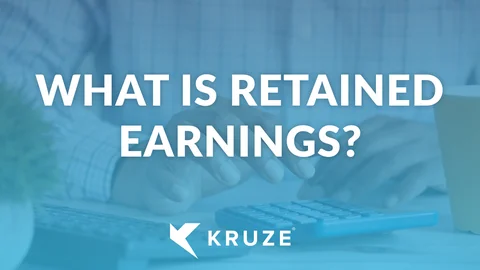
Retained earnings are found on your balance sheet. There will actually be a line item called retained earnings and that will be buried in the equity section. Essentially, your retained earnings are the sum of all the profits/net incomes from all the years you’ve been going as a company!
The flip side: Negative retained earnings
Now, if your company has been losing money every year, you can have what’s known as negative retained earnings. This can only be sustained if you are a venture capital backed startup who is constantly raising equity (basically our entire customer base here at Kruze).
Typically, small businesses live and breathe by their retained earnings. So much so that it is often just called the equity in the business. It’s basically just the equity that you have built up over the years if you’re a bootstrapped company.
However, since our clients are mainly venture-backed startups, they will frequently have negative retained earnings which are then offset by the incremental capital raises. These are also found in the equity section of your balance sheet.
Dividends and distributions reduce retained earnings
It’s important to note that retained earnings are adjusted for dividends and distributions. You would subtract any dividends or distributions, depending on how your business is structured. If your company is profitable and retains earnings, but you distribute a portion of those earnings as dividends, it will reduce the total retained earnings. Essentially, the more you distribute, the lower your retained earnings will be.
A startup metric to be proud of
Ultimately, retained earnings are a really nice metric to have. When your company is either bootstrapped or turns a corner and becomes profitable, retained earnings are a solid milestone to judge the profits you’ve made over the years.
If you have any other questions on retained earnings, valuations, startup investing, or startup accounting, please contact us. You can also follow our YouTube channel and our blog for information about accounting, finance, HR, and taxes for startups!








